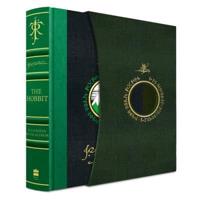Publisher's Synopsis
Operation Omega, the anarchic, nominally pacifist, one time direct action group in Bangladesh that had cooled into a relief and rehabilitation agency, had effectively ceased operating at the end of the previous book in the series 'Omega Unwinds'. As 1972 ripened and started to decay, the energies of group members turned more overtly to diversions of various sorts, as either mood or chance took them. The mere hint of a hurricane, a reverse in love, or a momentous revelation about one of its founding members, any one of these could trigger a further spiraling descent into farce, or even tragedy. This most high-minded of actions, originally designed to halt a genocide, became an arena for mostly young westerners to discover themselves, their weaknesses, the real colour of their ideals. In telling this tale (and it is finally a tale, a fiction, however much one of real events and passions), the author saw himself as fulfilling a promise made to an agency that had funded their last days; despite the fact that they were no longer actually doing anything in the way of relief or rehabilitation, let alone direct action, in Bangladesh, or anywhere else. Except possibly, and it is an important exception, with regard to themselves, their relationships, and their various talents. The agency's officer was convinced that such work should no longer be done by well-meaning expatriates of a former colonial power, but by recruits closer to the land itself. Omega's story seemed to bear out his theory rather well, and he imposed the condition that Omega write a report that was not a whitewash, but told the story very much as it was, the truth with all its knobs. The author took on this charge as a personal duty. Having found himself unable to write a conventional report, he had viewed the destruction of the Omega papers by a hurricane consisting of his children and their friends (who were one day inspired to ransack the shed where the papers were stored) as a sign that he was to write something more imaginative about the experience. A novel perhaps, that might recreate the events while to some extent protecting, where they wished them protected, the identities of the persons involved. Above all, it should be a true account, one that not merely sang such praises as were due, but trumpeted the human dramas that accompanied them; the extent to which the young people involved were, as some of them were always aware, mere adventurers, true outsiders in a strange yet curiously connected land (for Bangladesh was part of the original province of Bengal, whence the British had four centuries before, started and consolidated their rule of India.) The scene of action in this last book, varies more than any of the previous: from Dacca to Tetulia in the north, to Chittagong and Cox's Bazaar in the south-east, to Calcutta to the south, to Nepal, to the coastline down to Rameswaram in Tamil Nadu, to Kerala and Bombay, and finally back to Britain. The story is close enough to what happened to be a true record, without failing to exploit some of the advantages of a fictional approach; the principal of which (I hope!!) is humour, though, as said earlier, there is pathos and sadness to be found too, as in all true human dramas. Finally I hope very much it fulfils the assignment set by the relief agency concerned, though showing that, with all the mistakes, the shortcomings, the personal agendas, and the intrigues, Omega managed finally to have made the right sort of difference. Not least, I would submit, in correctly reading the signs that showed their direction could at any time be questioned, challenged; and that finally, it was high time to leave, just when we did.








